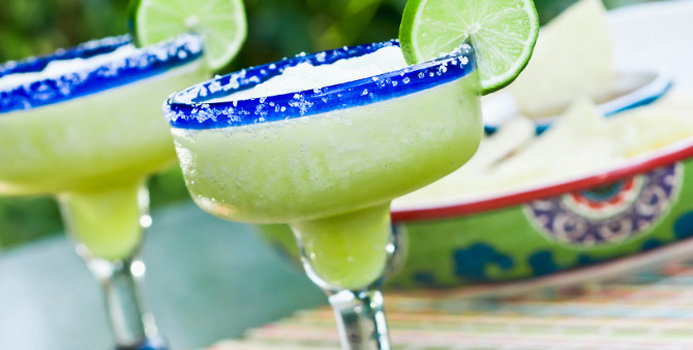While juice is generally rich in vitamins, many juice drinks contain added sugar and provide few, if any health benefits. In fact, getting too much added sugar in your diet can lead to unwanted weight gain, obesity, and obesity-related health conditions. Therefore, it's best to limit or avoid certain juice drinks.
Fruit Punch and Cranberry Juice Drink Blends
Unless the fruit punch or cranberry juice blend you're drinking specially states it's 100 percent fruit juice on the label, chances are it's high in added sugar. Many juice drink blends list some form of sugar as the second ingredient, after water, on the food label -- and many of these drinks contain little, if any, fruit juice. The American Diabetes Association urges people with diabetes to avoid fruit punch and other sugary drinks because of the extra calories in these drinks, and blood sugar spikes that can occur after drinking them. However, there are some fruit punch and cranberry juice blends that contain 100 percent fruit juice, so read the food label carefully and make sure that sugar (or high-fructose corn syrup) isn't listed in the ingredient list.
Lemonade and Kool-Aid
Lemonade and Kool-Aid are often loaded with sugar, and can cause blood sugar spikes and unwanted weight gain. The U.S. Department of Agriculture's National Nutrient Database for Standard Reference notes that 1 cup, or 8 fluid ounces, of lemonade contains about 25 grams of sugar. Similarly, Kool-Aid drinks are simply water mixed with sugar, preservatives, and artificial flavor. Lemonade and Kool-Aid drinks contain little or no fruit juice. While these drinks do provide calories and energy, they don't keep you feeling full very long and can put you at risk for overweight and obesity, according to a review published in 2006 in The American Journal of Clinical Nutrition.
Diet Juice Drinks
While diet juice drinks often contain few or no calories, they aren't necessarily better for you than sugary juice drinks. Diet juice drinks contain artificial sweeteners, which are often much sweeter than sugar but don't provide calories. Harvard School of Public Health notes that the U.S. Food and Drug Administration approved the following five artificial sweeteners to be added to foods and beverages (you may notice these on food label ingredient lists): aspartame, neotame, acesulfame-K, saccharine and sucralose.
A review published in 2013 in Trends in Endocrinology & Metabolism reports that consuming artificial sweeteners is associated with an increased risk for weight gain, obesity, a higher body fat percentage, and type 2 diabetes -- and that higher artificial sweetener use may be associated with high blood pressure and heart disease.
Authors of this review suggest that artificial sweeteners could be responsible for these adverse health outcomes because they alter your brain's response to sweet tastes, and don't stimulate insulin release in your body like foods and drinks that contain calories. Another review published in 2010 in the Yale Journal of Biology and Medicine reports that because artificial sweeteners taste sweet, they can lead to sugar cravings and sugar addiction.
3 Reasons Skipping Meals Is Unhealthy
An experienced health, nutrition and fitness writer, Erin Coleman is a registered and licensed dietitian and holds a dietetics degree from the University of Wisconsin-Madison. She also has worked as a clinical dietitian and health educator in outpatient settings. Erin's work is published on popular health websites, such as TheNest.com and J




